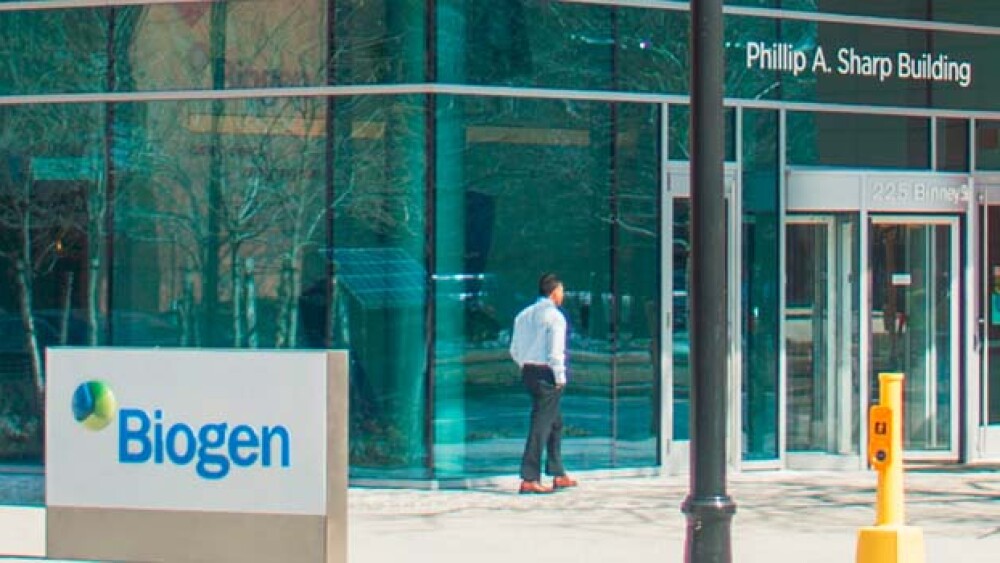However, because the trial did show some efficacy and met other secondary endpoints, the companies are continuing to analyze the data and decide on their next moves.
In what could be labeled, “Down but not out,” Cambridge, Mass.-based Biogen and Brussels, Belgium-based UCB announced that their Phase IIb trial of dapirolizumab pegol in lupus failed to hit its primary endpoint. However, because the trial did show some efficacy and met other secondary endpoints, the companies are continuing to analyze the data and decide on their next moves.
Dapirolizumab pegol (DZP) is an anti-CD40L pegylated Fab, which is a complicated way of saying that it is a fragment of an antibody that binds to a protein called CD40 ligand, which is mostly expressed on activated T-cells. Blocking CD40L has shown some positive effects in autoimmune disorders. The use of a fragment is designed to reduce the risk of thrombotic events.
The drug was being evaluated in adults with moderately-to-severely active systemic lupus erythematosus (SLD) despite receiving standard-of-care treatment like corticosteroids, anti-malarial drugs and non-biological immunosuppressants.
The study’s primary endpoint was to show a dose response at 24 weeks using the British Isles Lupus Assessment Group (BILAG)-based Composite Lupus Assessment (BICLA). The trial did not meet that endpoint.
The company stated, “The study did demonstrate consistent and potentially meaningful improvements for the majority of clinical endpoints in patients treated with DZP compared with placebo. In addition, biomarker data demonstrated evidence of proof of biology. DZP was well tolerated and demonstrated an acceptable safety profile.”
Lupus is a notoriously difficult indication to develop drugs for. Xencor, AstraZeneca and Sanofi have all had failures recently in developing treatments for SLD.
SLD is an autoimmune disease where the body’s immune system attacks the body. Patients with active lupus generally feel unwell and complain of fever, weight loss and tiredness. There are also potential specific problems if various areas of the body are attacked, including skin, joints, and kidneys, as well as blood, which can result in anemia, low white blood cell count and low platelet count.
Peter Welford, an analyst with Jefferies, wrote in a note to clients, “We understand that consistent, and potentially meaningful improvements were demonstrated across the majority of clinical endpoints compared to placebo, and biomarker data were supportive. Along with partner Biogen, UCB is considering next steps for the program. DZP was safe and well tolerated. SLE trials have a notoriously high attrition rate, hence we had not ascribed any value to DZP in our valuation.”
Other investors must have agreed, because, the companies’ shares only dropped a bit, UCB by 3.98 percent and Biogen by 5.2 percent.
The news was likely overshadowed by Biogen’s third-quarter financial results today. It reported a total increase in revenue for the quarter of 12 percent, totaling $3.4 billion. Sales were driven by Spinraza for spinal muscular atrophy (SMA), which brought in $468 million for the quarter.
“Biogen performed well against our strategic and operational priorities in the most recent quarter,” stated Michel Vounatsos, Biogen’s chief executive officer. “Reported revenues grew at a double-digit rate boosted by strong gains from Spinraza, our biosimilars business, and Ocrevus royalties versus a year ago. Net income and earnings per share both increased at double-digit rates supported by a lower tax rate and a lower share count. Our core MS business was relatively resilient during the quarter.”





